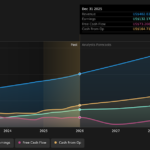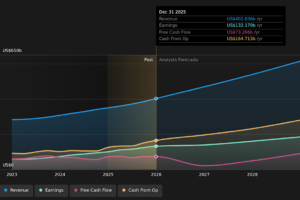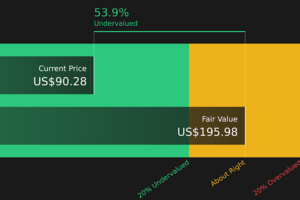Imagine moving a computer mouse with only your thoughts. You think it, and it’s done.
It may be science fiction, but it’s becoming a reality for some.
“It sounds maybe a little bit abstract or perhaps even trivial,” Michael Mager, co-founder and CEO of Precision Neuroscience, told Yahoo Finance at the annual Invest conference on Tuesday. “But for a certain group of people, it has the potential to be totally transformative.”
Precision has developed a brain implant to reconnect patients suffering from severe paralysis to the digital world. These patients can’t use their arms or hands and, in some cases, can’t speak. There are roughly 400,000 people in the US who fit that description.
So far, the company has temporarily implanted its brain-computer interface (BCI) into 26 patients during clinical studies that don’t require FDA approval.
BCI is a growing field with several well-funded startups. An October Morgan Stanley report said the BCI industry is a potential $400 billion market in the US. The analysts expect commercial activity to be five years away with an estimated 3 million potential users for its first-generation devices. They forecast $1.5 billion in revenue by 2035 and $1 billion by 2041.
Precision Neuroscience was founded in 2021 by Mager and Benjamin Rapoport, a neurosurgeon and engineer who previously co-founded Neuralink alongside Tesla (TSLA) CEO Elon Musk. He left Neuralink in 2018.
Precision’s implant, called the Layer 7 Cortical Interface, is a thin and flexible film material about a fifth of the thickness of a human eyelash. Each array has 1,024 electrodes on a 1.5-square-centimeter surface.
The array is implanted by surgeons through a micro-slit less than 1mm wide in a minimally invasive procedure. Unlike its rivals, the BCI sits on top of the brain, not in its tissue.
According to Mager, Precision has raised more than $140 million to date, including a $93 million round last week. Its investors include Forepont Capital Partners, Draper Associates, Mubadala Capital, Alumni Ventures, and re.Mind Capital.
Other implantable BCI companies — Neuralink, Paradromics, Blackrock Neurotech, and Inbrain Neuroelectronics — surgically thread the device into the brain’s tissues, which carries a higher risk of infection and cell damage.
Synchron, backed by Amazon (AMZN) founder Jeff Bezos and Microsoft (MSFT) founder Bill Gates, has developed a stent-like device that’s inserted through the blood vessels and sits near the patient’s brain.
“Having a co-founder as a neurosurgeon who thinks about the actual mechanics of ‘how do you get devices into the brain in a safe and scalable way,’ I think it’s a huge competitive advantage,” Mager said.
The company is awaiting FDA clearance to allow implantation in patients at hospitals for up to 30 days. If approved, Mager expects the number of patients undergoing the procedure to jump from dozens to thousands next year. The entire industry has implanted less than 80 patients within the last two decades.
“I think it’s an important milestone for us and for the industry,” Mager said of the regulatory process. “We will be able to start selling a device, so generating some revenue, which will be great.” He added the company is working toward an eventual IPO, though no target date has been set.
Despite overlaps with Neuralink, Precision has a fundamentally different company mission. Neuralink’s ultimate objective is to enhance the mind. “That’s a fine goal and maybe a very important one but it’s not our goal. We are a physician-led company,” said Mager. “The goal of this company is to make a really meaningful, positive difference in people’s lives.”
The regulatory framework under the new Trump administration could completely change the landscape. Trump has signaled that Robert F. Kennedy Jr. will play a pivotal role in his administration’s healthcare policies. While Kennedy does not hold a degree in medicine or healthcare, Trump said Kennedy would “help make America healthy again” in his victory speech last week.
During an MSNBC appearance on Wednesday, Kennedy said there are “entire departments” within the FDA that “have to go.”
It remains to be seen exactly how Musk’s influence on the president-elect will impact the BCI sector.
“I don’t think it’s a bad thing,” Mager said of Musk. “To have someone who really understands the technology, its importance, its potential to do something really good … at a senior level in government. All that said, we as an industry don’t need any special favors or treatment. The data will speak for itself — the patient benefit will speak for itself.”
Yasmin Khorram is a Senior Reporter at Yahoo Finance. Follow Yasmin on Twitter/X @YasminKhorram and on LinkedIn. Send newsworthy tips to Yasmin: [email protected]
Click here for the latest technology news that will impact the stock market
Read the latest financial and business news from Yahoo Finance








